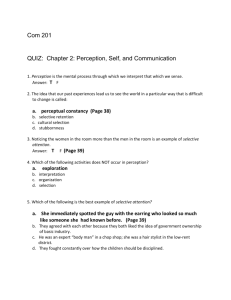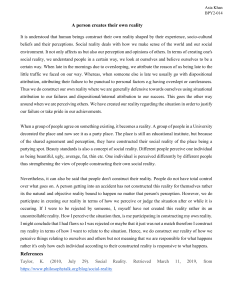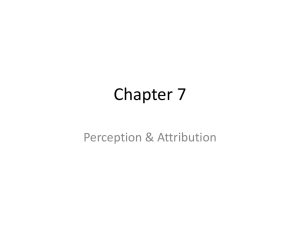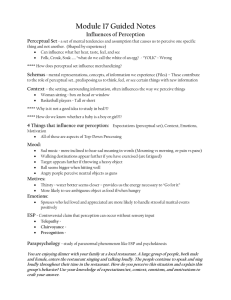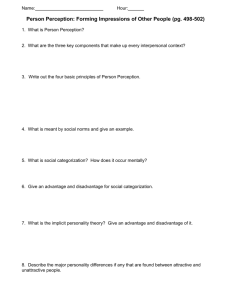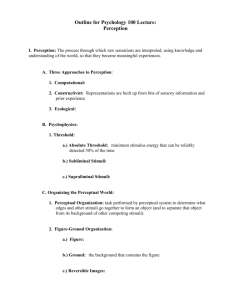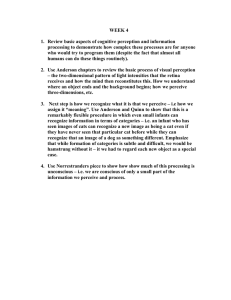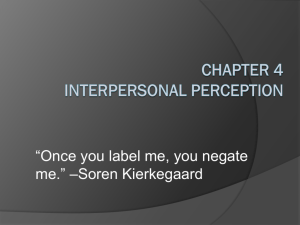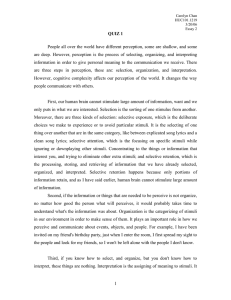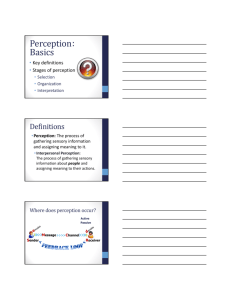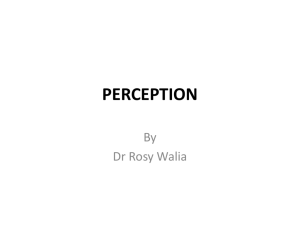I. Perception - Napa Valley College
advertisement
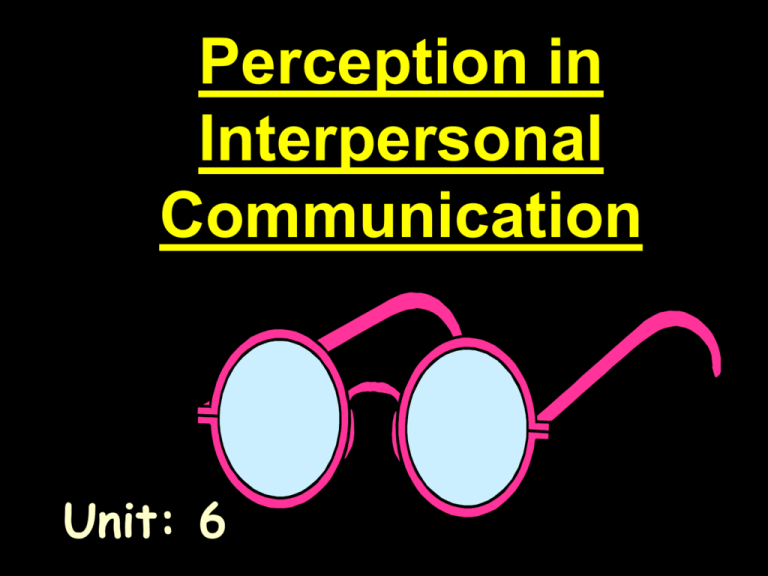
Perception in Interpersonal Communication Unit: 6 Perception is the process of becoming aware of objects and events through the senses I. Stages of Perception The way we Sense Organize InterpretEvaluate information A. Stimulation 1. take in stimuli through the 5 senses 2. we are selective in the stimuli we choose to perceive a. selective attention = attend to things that you anticipate will fulfill your needs b. selective exposure = expose yourself to things that will confirm your beliefs B. Organization 1. proximity = things that are close together in physical distance are seen as one unit Separate but together 2. Schemata = organize material by creating mental templates or structures 3. Scripts = type of schema C. Interpret-Evaluate 1. we assign meaning to stimuli as soon as we perceive it. 2. we evaluate stimulus as either pos. or neg. as soon as we perceive it. D. Memory = stored perceptions and their interpretationsevaluations for later recall E. Recall = is reconstructive not reproductive II. Perceptual Process A. Implicit Personality Theory = your own unscientific theory based on certain characteristics belonging with others B. Self-Fulfilling Prophecy = strongly influence situations based on how we view and label things (There are 4 Steps) The 4 Steps are: 1. make a prediction 2. act as if the prediction is true 3. because you act as if true, it becomes true 4. prediction is confirmed C. Perceptual Accentuation = process that leads you to see what you expect to see and what you want to see D. Primacy-Recency 1. Primacy-Effect = what comes first is the most influential 2. Recency- Effect = what comes last is the most influential E. Consistency = tendency to maintain balance among perceptions or attitudes F. Stereotyping = is a fixed impression of a group of people III. Attribution Theory = process of attributing motivation to a person’s behavior A. Two Types of Motivation 1. internal control = inside the person 2. external control = outside of the person B. Attribution Errors 1. self-serving bias = only take responsibility for the positive behaviors 2. over-attribution = single out a couple of obvious characteristics and attribute everything that person does to them 3. fundamental attribution error = over value internal factors and under value external factors of others
